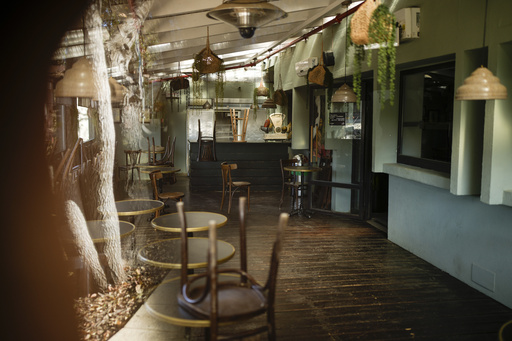
EIN ZIVAN, Golan Heights — A brisk mountain breeze swept past a group of Israeli flags at the entrance of a kibbutz in the Golan Heights, a region claimed by Israel but considered occupied Syrian territory. Despite the peaceful atmosphere, significant developments are taking place nearby, particularly following the recent ousting of Syrian President Bashar Assad after nearly 25 years in power. Just hours after his removal, Israeli tanks entered the Golan’s demilitarized buffer zone, which was established under a 1974 ceasefire. Israel characterized this maneuver as a temporary measure aimed at securing its borders.
Shortly thereafter, the Israeli government sanctioned Prime Minister Benjamin Netanyahu’s ambitious plan, which allocates $11 million in financial incentives to boost the number of Israeli settlers in the Golan Heights. Israel captured this region during the 1967 Middle East war, and Netanyahu firmly stated that Israel would “continue to hold onto it, make it flourish and settle it.” The global perspective remains largely critical, as the international community, with a solitary exception, views the Golan as occupied. The United Nations regards Israeli settlements there as illegal; however, in 2019, the United States became the only nation to recognize Israel’s annexation of the Golan Heights.
Currently, the population in the Golan stands at around 50,000, comprising roughly equal numbers of Israeli settlers and Arab Druze, a religious group present in Syria, Lebanon, Israel, and the Golan. The announcement regarding the settler increase was met with mixed reactions from the local communities, ranging from skepticism to excitement.
Paul Hecht, who has lived in the Golan for most of his 42 years, shared his concerns about the rapid growth. He expressed love for the Golan as it is and fears that excessive population growth could lead to overcrowding. While he wants to see the region progress, he emphasized that the current infrastructure, particularly roads, is insufficient for the existing populace. The local economy is heavily reliant on agriculture and tourism, and previous government efforts to attract more residents have struggled primarily due to a lack of job opportunities and the distance from major urban centers.
One significant attempt in 2019 to draw settlers by renaming a Golan settlement after former U.S. President Donald Trump did not yield the expected results. Nonetheless, Hecht is optimistic that Assad’s removal could encourage more Israelis to consider relocating to the Golan. He believes that the newfound perception of security in the area may attract individuals seeking a new life in this picturesque region known for its natural beauty.
Shlomo Benhaim, a 60-year-old contemplating a move to the Golan, views it as a long-cherished dream. During a visit to Ein Zivan, an old kibbutz close to the Syrian border, he expressed his fondness for the Golan’s unique history and charm. However, the road to relocation is fraught with challenges, as the Golan is situated a significant distance from lucrative job markets and urban amenities, notwithstanding its quality education system and a lack of traffic congestion.
Shefi Mod, a hotel manager at nearby Kibbutz Merom Golan, expressed optimism about the government’s incentives such as tax breaks and affordable land potentially attracting new residents. Having initially come to the area as a soldier, Mod found it so appealing that he decided to settle there. However, whether others will be encouraged to make the same choice is still uncertain.
The sentiment among the Druze community in the Golan is complex. Although many identify as Syrian, most have chosen not to take Israeli citizenship, preferring residency permits instead, highlighting their intricate relationship with Israel. Khaled Elshaer, a restaurant owner from the Druze village of Masada, conveyed his disbelief and shock over the government’s plans to increase the settler population, asserting that such decisions will proceed without consulting the local Druze residents.
For many Druze, the Golan is inherently Syrian, yet there is a reluctance to return to Syria, leading to a sense of identity that transcends national boundaries. Local surgeon Ali Abu Awad reaffirmed that the region remains an essential part of Syria and expressed concerns over perceived systemic discrimination against religious minorities. He criticized the Israeli government’s plans, suggesting that past promises to boost the settler population have consistently failed to materialize.

